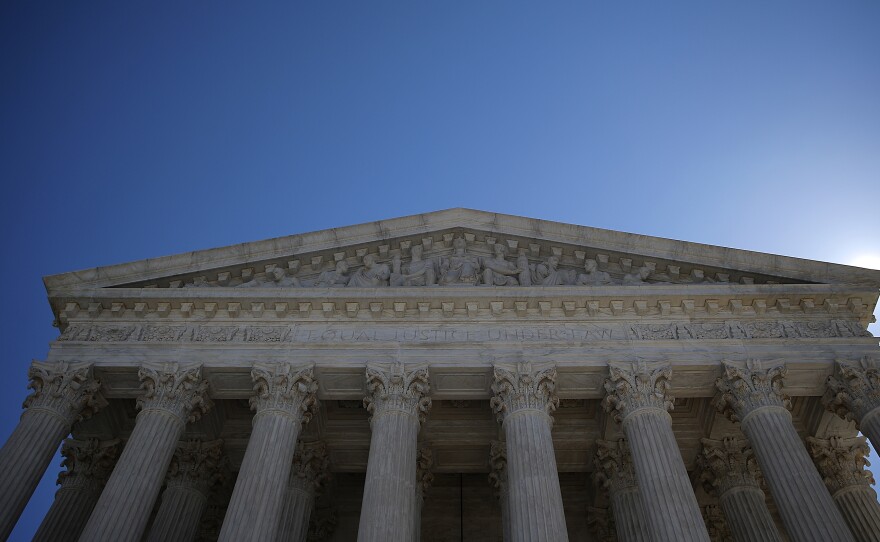The U.S. Constitution says that "We the People" are the source of political authority in America. But just who are "the people"? That's a big and basic political question, and today the Supreme Court gave its answer — in a unanimous decision.
The court ruled that the total population as defined by the Census Bureau should be used when counting people for political purposes. That means all persons residing in a particular state or district are to be counted, not just those who are eligible to vote.
The challenge came from Texas, though that state counts its population for political purposes the same way the other 49 states do. It was brought by the conservative activist group Citizens for Fair Representation, which in recent years has pursued successful legal challenges to parts of the 1965 Voting Rights Act and the affirmative action policies of the University of Texas-Austin.
The challengers had argued that only citizens who are at least 18 years old should count when separating the population into voting districts (which are drawn to have about the same number of people).
They said eligible voters had a disproportionate impact in voting when they live in districts with large numbers of ineligible people (noncitizens and nonadults). Conversely, they argued, those living in districts with fewer ineligible people had their voting power diluted.
The plaintiffs said this violated the constitutional principle of equal protection under the law.
The situation they were describing is mostly likely to occur in states with large numbers of immigrant residents, such as Texas, California, Florida, New Jersey, Arizona and Nevada. But it would also affect large cities with sizable immigrant populations.
The practical effect would be to create more legislative districts where older and enfranchised people are predominant, and fewer districts with large populations of people ineligible to vote.
The decision, written by Justice Ruth Bader Ginsburg, based its reasoning in the federal practice of defining population as all persons. Five justices joined with Ginsburg in her opinion. Two others, Justices Clarence Thomas and Samuel Alito, wrote their own concurring opinions. They agreed that Texas could not be forced to change its method of counting, but they maintained that any state could do so if it chose.
Copyright 2016 NPR. To see more, visit http://www.npr.org/.






